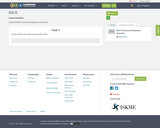
Contains RACE Constructed Response Overview
- Subject:
- English Language Arts
- Material Type:
- Lesson Plan
- Author:
- Katie Shea
- Date Added:
- 05/22/2019
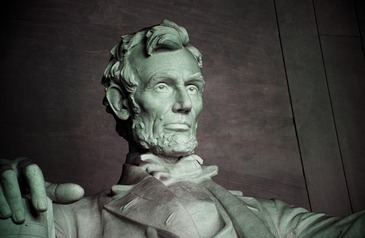

Contains RACE Constructed Response Overview
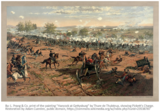
In this seminar you will learn about the Battle of Gettysburg, a very bloody battle. You will use the habit of mind applying previous knowledge as you learn about the Civil War and apply it to this specific battle. You will get to choose whether you would like to read, watch, or explore the Battle of Gettysburg through a virtual tour. You will learn why this battle was such an important one and describe some of the events that took place in an informational project!Standards5.2.U.BAnalyze strategies used to resolve conflicts in society and government.
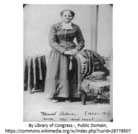
Why is Harriet Tubman considered a hero?During this seminar, you will learn about one brave railroad conductor named Harriet Tubman. By the end of the seminar, you will identify and explain the characteristics she possessed that enabled her to save many lives. Using the complex reasoning skill of constructing support, you will relate several events from her life and experiences with the Underground Railroad to explain why Harriet Tubman is considered a hero.

During this seminar you will learn about one brave railroad conductor named Harriet Tubman. By the end of the seminar you will identify and explain the characteristics she possessed that enabled her to save many lives. Using the complex reasoning skill of constructing support, you will relate several events from her life and experiences with the Underground Railroad to explain why Harriet Tubman is considered a hero.StandardsStandard - 5.1.U.CAnalyze the principles and ideals that shape United States government.
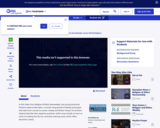
This video segment from Religion & Ethics Newsweekly shows the daily activities of two young American Muslims during the holy month of Ramadan.
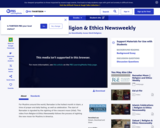
The sighting of a new moon determines the beginning of the Islamic holy month of Ramadan. In this video from Religion & Ethics Newsweekly, follow the process of sighting a new moon for American Muslims.
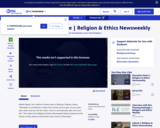
In this video segment from Religion & Ethics Newsweekly, an American Muslim family observes Ramadan, the month in which Muslims fast daily from sunrise to sunset in order to demonstrate piety and develop self-restraint.
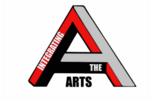
This resource was created by Nepthys Justo, in collaboration with Dawn DeTurk, Hannah Blomstedt, and Julie Albrecht, as part of ESU2's Integrating the Arts project. This project is a four year initiative focused on integrating arts into the core curriculum through teacher education, practice, and coaching.
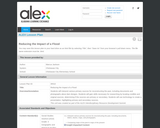
Students will interpret various primary sources for reconstructing the past, including documents and photographs about dam designs. Students will gain skills necessary for researching by locating credible and original sources, determining if the sources are primary or secondary. Students will use technology to create a presentation, highlighting primary and secondary sources. This unit was created as part of the ALEX Interdisciplinary Resource Development Summit.
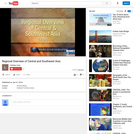
This video talks about the geography of Central and Southwest Asia.
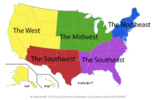
We live on the continent of North America and in the great country of the United States. The United States is split into five different regions. In this seminar you will learn about the five regions and their characteristics.Standards7.1.4.B Describe and locate places and regions as defined by physical and human features.

We live on the continent of North America and in the great country of the United States. The United States is split into five different regions. In this seminar you will learn about the five regions and their characteristics.Standards7.1.4.B Describe and locate places and regions as defined by physical and human features.
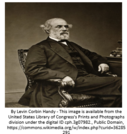
In this seminar you will learn about the Confederate General Robert E. Lee, his role, and how it impacted the Battle of Gettysburg. You will create an informational presentation about his role and his leadership as you use past knowledge on the Battle of Gettysburg. You will apply knowledge from this seminar into the next seminar in order to compare leaders in the war.Standards5.2.U.BAnalyze strategies used to resolve conflicts in society and government.

Roger Abrahamson demonstrates his craft to youth. Abrahamson is a traditional bowl turner who uses the medieval technology of a spring pole lathe and hand-forged tools to create Norwegian ale vessels.
A lesson plan for grades 5-12 is included as a gallery asset and in the support materials.
More About This Resource
Postcards is an award-winning series showcasing the arts, history, and cultural heritage of western Minnesota and beyond. Funding for Postcards comes from the Minnesota Arts and Cultural Heritage Fund. To watch more Postcards, visit the show page or video portal.

Karen Jenson reflects on her life and lengthy career as a renowned Norwegian and Swedish rosemåler. Take a tour of her awe-inspiring house full of her work.
A lesson plan for grades 8-12 is included as a gallery asset and in the support materials.
More About This Resource
Postcards is an award-winning series showcasing the arts, history, and cultural heritage of western Minnesota and beyond. Funding for Postcards comes from the Minnesota Arts and Cultural Heritage Fund. To watch more Postcards, visit the show page or video portal.
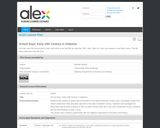
Students will explore an article about education in the early nineteenth century and a newspaper article from 1818 to determine what education was like in the early nineteenth century. Students will investigate the documents and find text evidence to find out what schools were like in the early nineteenth century. Students will use their findings to write a story. This lesson was created in partnership with the Alabama Department of Archives and History.
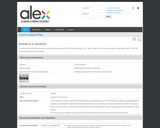
In this lesson, students will be able to describe cultural aspects of early nineteenth century townspeople by reading a newspaper article describing the opening of a new school. Students will also be able to discuss, infer, and write from a variety of perspectives when explaining the roles of various people mentioned in the article. This lesson was created in partnership with the Alabama Department of Archives and History.

In this seminar you will learn about the Underground Railroad, a dangerous route that slaves took to escape to the north. After completing the activities, you will understand what the Underground Railroad was and how it is was used. You will explain the challenges that people faced while traveling on the Underground Railroad and use the complex reasoning skill of constructing support.Standards5.1.5.CDescribe the principles and ideals shaping local, state and national government.
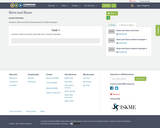
Contains: Show and Share Overview and 2 Student samples
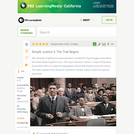
This segment from American Experience: Simple Justice captures the legal issues and opening arguments in Brown v. Board of Education.